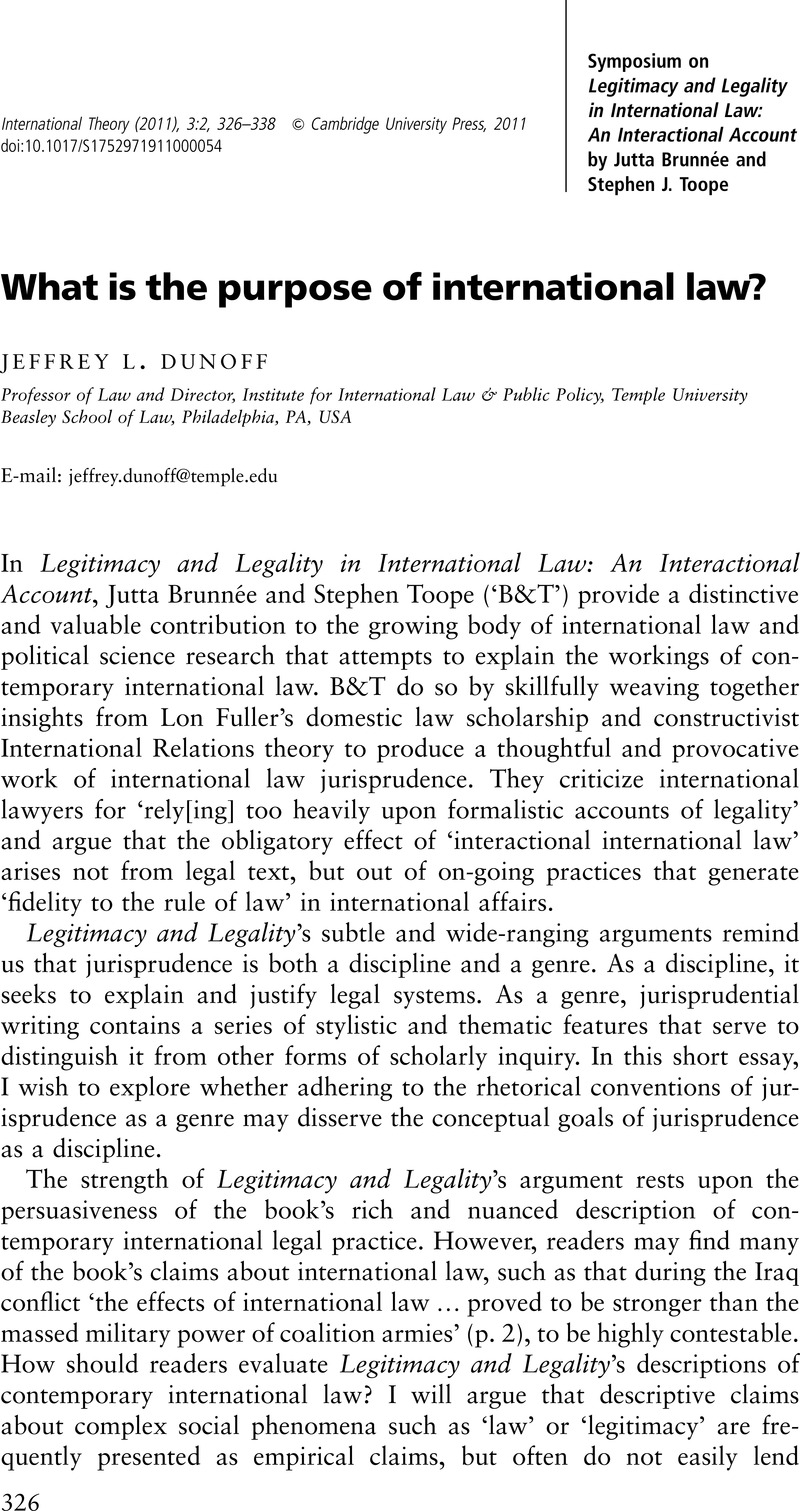Crossref Citations
This article has been cited by the following publications. This list is generated based on data provided by Crossref.
Wiener, Antje
2018.
Taking Stock of Integration Theory.
SSRN Electronic Journal ,
Lefkowitz, David
2024.
A new philosophy for international legal skepticism?.
International Theory,
Vol. 16,
Issue. 2,
p.
237.



